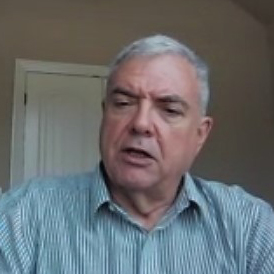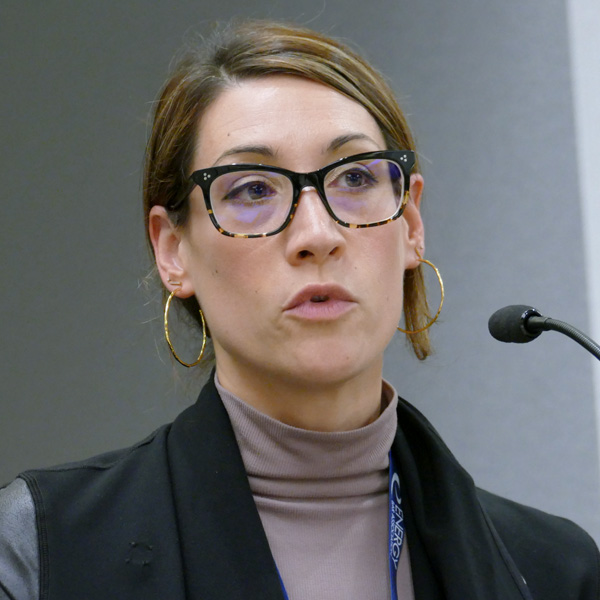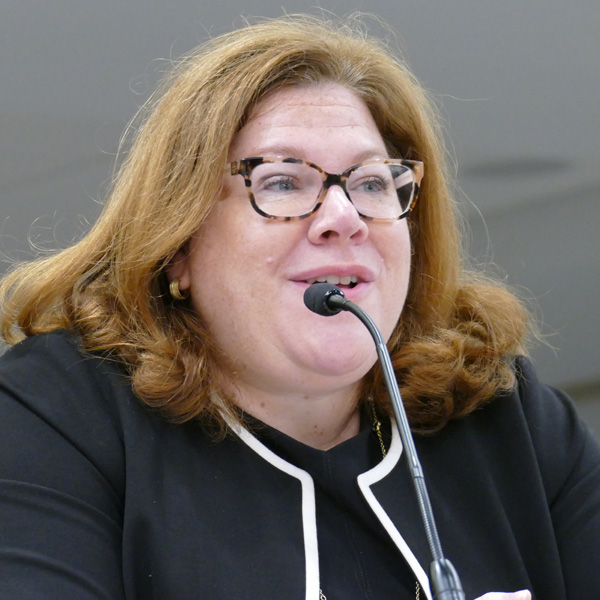An ad hoc group in SPP’s Strategic Planning Committee, tasked with advising the committee on “non-standard loads,” said last week that the RTO’s tariff is based on a wholesale/retail regulatory regime and, therefore, can handle the potentially interruptible load interested in interconnection.
Staff said SPP has received 56 requests for delivery point changes totaling 7.1 GW of capacity since June 2021, primarily for data centers and cryptocurrency miners. While they are the most familiar non-standard loads, others include server farms, biofuel manufacturers and hydrogen electrolyzers.
 Richard Dillon, SPP | SPP
Richard Dillon, SPP | SPP
“And our favorite, the cannabis growhouses, especially in Oklahoma, where it’s very legal to do that for recreational purposes,” SPP’s director of market policy, Richard Dillon, said during the SPC’s virtual meeting Wednesday.
These loads represent significant potential firm or non-firm additions. Staff determined that stranded transmission costs, resource adequacy and whether the loads would be considered interruptible or demand response were all significant issues.
“There was a lot of concern about what happens if these loads come on and then disappear,” Dillon said. “These are major concerns for load-serving entities because ultimately, they will be comparing costs with those decisions.”
He said many of the loads interesting in the SPP market are trying to sidestep being considered retail load in a footprint that is devoid of retail competition. Some of the inquiries are trying to co-locate with renewable generation and net out the load with generation where both the load and the generation is behind the meter.
“The discussion with those entities has been, ‘OK, so you’re going to put in controls that automatically cut power off in microseconds, the moment that the renewable generation drops,’” Dillon said. “Thus far, no one has taken us up on that scenario, because crypto miners make money by burning electricity. If they’re down, they’re not making money.”
This has raised members concerns about resource adequacy and stranded costs because of the loads’ uncertainty. Southwestern Public Service’s Jarred Cooley said his company has been fielding several calls a week from loads, some as large as 1,400 MW, interested in connecting to its system.
“One of the key issues here is the transient nature of the loads and the likely need for significant transmission investment,” he said. “We’ve talked at the point of interconnection that’s between us and our load and us and our customers and figuring out how to properly protect them or how we charge those based on our state jurisdictions.
“These loads, we don’t expect them to be transmission investments that are going to be paid for,” Cooley said.
Dillon was unable to offer solutions but suggested members take advantage of this week’s Market Working Group meeting for an in-person discussion of the issue. He said the MWG will revisit a draft revision request (RR521) that clarifies the tariff’s DR and net metering provisions.
SPP Staffing up in West
Bruce Rew, SPP’s senior vice president of operations, told the SPC that the grid operator’s efforts in the Western Interconnection remain on track.
Seven Western entities are continuing to evaluate membership in SPP’s RTO West, he said. They face a commitment target date of March 1, 2023.
“Once that begins, they will move forward with the RTO transition and everything associated with that,” Rew said.
Markets+, an RTO “light” service offering, is also on schedule to receive commitments from interested parties next year. A final development session is being held in Westminster, Colo., in November.
The development of RTO West and Markets+ will be funded by the participants, but Rew said SPP has still hired more than 40 staffers to support those and other efforts.
“We would hire additional staff based on the implementation effort and long term effort for supporting the RTO expansion,” Rew said. “We will ultimately go to receive approval of the budget once we have a final commitment from those parties and know exactly what size and scope that we’re dealing with. We will add additional staff should we receive a long term commitment to RTO West or Markets+.”
Cupparo Joins Committee
SPC Chair Mark Crisson welcomed Director John Cupparo onto the committee as a replacement for Director Susan Certoma, who will chair the Board of Directors next year.
Cupparo will replace Crisson, who is cycling off the board next year, as the committee’s chair.
“A lot of important things come through here. I look forward to working with everyone,” Cupparo said.









